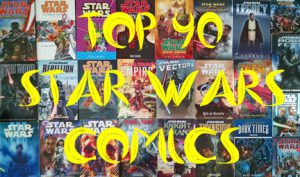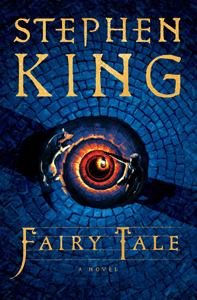Stephen King goes into full fantasy adventure mode for “Fairy Tale” (September, hardcover), a 599-page doorstop he wrote during the height of the pandemic, driven to give people a grand and ultimately happy story. Before he gets there, King goes to some dark places.
He partly taps into YA fiction like “Harry Potter” and “The Hunger Games,” but “Fairy Tale” is mostly for readers who can handle the dark stuff. The author references H.P. Lovecraft and those many-tentacled hellbeasts like Cthulhu that even non-Lovecraft scholars know as “Lovecraftian.”
And when he mentions older works such as “Rumpelstiltskin,” he’s sure to note the original, violent version, not the safe-for-kiddies version. (The villainous Rumpelstiltskin’s O.G. fate, for instance: being ripped in half, his intestines spewing.)

King pulls off a balancing act in “Fairy Tale” wherein he drops lots of pop-culture references – from the Brothers Grimm to the 2010s YA boom, with Turner Classic Movies crammed in there — yet his own imagination is fertile enough that I didn’t feel he was taking short cuts.
Standing on the shoulders of giants
Now, certainly, this book is in the hero’s journey tradition. If you’re even slightly acquainted with Joseph Campbell, you can guess where things are going. But King’s world-creation is rich enough to overcome the predictable elements. For one thing, I have to admit “Fairy Tale” goes to much different places than where it begins: 2013 in a small town outside Chicago, as narrated by 17-year-old Charlie Reade.
For the first 200 pages, King (and the reader) is in comfortably familiar territory: A young man (Charlie) bonds with an old curmudgeon (Harold Bowditch). This relationship is a subgenre within the wider genre of “Stephen King”; Constant Readers might think of “Mr. Harrigan’s Phone,” recently adapted into a Netflix movie.
The humanizing of the mean old man who has fallen off his ladder, Charlie’s maturity in helping to nurse Bowditch back to health, and their mutual love of the loyal old German Shepherd named Radar had me turning pages. And a mystery percolates: Ominous sounds come from the shed in Bowditch’s back yard. He has allowed Charlie access to his once-grand, now-ramshackle house, but the shed is strictly off limits.
Once Charlie goes into the shed and down the well we see in the cover art, we’re not in Kansas (or Illinois) anymore. “Fairy Tale’s” world opens up, mostly for the good — partly because of King’s specific creations, partly because he taps into the joy of this genre, making me think “This is fun, maybe I’ll re-read ‘The Hobbit’ next.”
Adding spice to a familiar meal
But I must mention reservations. By the time of Charlie’s well descent, Charlie’s reformed-alcoholic dad has become a likable character, and I’m also interested in Charlie’s relationship with Bowditch’s nurse, and I’m revved up over Charlie’s Earthly enemies in the underground gold-exchange market. King has successfully built a world – it’s our world, yes, but Charlie’s slice of it has wintry bite. (SPOILERS FOLLOW.)

At times when reading about Empis, the fantasy world King creates, I was looking forward to the third act (presumably the last 200 pages) where the action would return to Earth. Instead, King keeps us on Empis much longer.
“Fairy Tale” flirts with being a slog in the middle, but ultimately King’s creativity wins the day. True, he openly acknowledges his debt to what’s come before whenever something on Empis reminds Charlie of a book or movie.
But meanwhile, King’s own inventions are descriptive and believable. In the tunnel leading to Empis, Charlie feels light-headed, like he has “crossed over.” When he speaks, he can’t say certain English words, and the words he can say are translated into Empisarian when they emerge from his mouth. I love this simple yet clever way of getting around the old fantasy conundrum wherein a world is supposedly foreign yet everyone speaks English (or Basic, as it’s called in the “Star Wars” Expanded Universe).
We meet dozens of helpers and enemies, most distinctly drawn and many likable (or detestable, if that’s the goal). Some have magical traits that King smoothly explains. Accompanied by illustrations at the start of each chapter, “Fairy Tale” is heady single-novel world-building, although perhaps straightforward compared to a multi-book saga such as “The Dark Tower.”
Easily accessible first person
“Fairy Tale” is entirely told by Charlie (looking back from 2022), so it’s impressive how there’s zero sense of self-centeredness to the main character. Even though it’s all in the first person, I often somehow forgot that it’s in the first person. The trick to Charlie’s companionable nature might be quite simple: He loves Radar, and we can’t help but love people who love their dogs.
Charlie’s main goal is magical: To bring the aging and arthritic Radar to a carousel that serves as a fountain of youth. The bittersweet “Tuck Everlasting” theme about the downside of eternal life does not apply to Radar, because dogs’ lives are so cruelly short and because they are innocent animals. So we get pure hopefulness without the dark side (although darkness will come in other hero’s-journey contexts, and via the aforementioned monsters).
Although he doesn’t return to Earth as quickly as I had hoped, King does maintain an important tether to the real world. Humanity can’t know about Empis, because then humanity would (of course) destroy both Empis and itself. The author mentions nuclear war and climate change, but – as with Charlie’s self-awareness that he’s become a storybook prince – King arguably need not be so on-the-nose.
“Fairy Tale” blends age-old tropes with the imagination of one of today’s great storytellers. Aside from occasional slogging patches, it’s a compelling combination. I don’t think the book will transcend either its roots or the middle ground of King’s own catalog, but the author does achieve his COVID-era aim: “Fairy Tale” will have you thinking of grander things than Earthly issues when your nose is in its pages.

